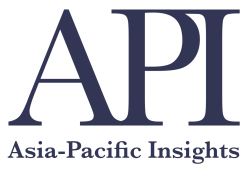Paradox of the Oncoming Upheaval

By Col Dencio S. Acop (Ret), PhD, CPP | Date 07-03-2024
BOSTON, MASSACHUSETTS — A global war in the 21st century is no longer just a plausibility but a certainty. And the paradox in this certainty is that in all likelihood, the United States will call the first nuclear strike to annihilate its enemies.
Consider these three thoughts: first, nuclear states are eventually bound to use their atomic warheads if all else fails. Second, China’s grand strategy to win is psychological warfare based on overwhelming superiority short of actual nuclear conflict which annihilates its materialistic culture. Third, the United States, on the other hand, has the advantage of first-strike capability and a culture of determined will to win just wars over evil empires.
On the first point, states which possess nuclear weapons in their defense arsenal are eventually bound to use them if and when all else fails. Nine countries currently have nuclear weapons: the United States, Russia, China, France, the United Kingdom, India, Pakistan, Israel, and North Korea. There are three present global hotspots: Ukraine, the Middle East, and the South China Sea. Three nuclear states are directly involved in these conflicts: Russia, China, and Israel. Three are indirectly involved: the United States, Russia, and China.
Five of the nine nuclear states are part of the Indo-Pacific region where China’s aggression in the South China Sea is fomenting increased conflict with other territorial claimant states: the Philippines, Taiwan, Vietnam, Indonesia, Malaysia, and Brunei. Russia is directly involved in the Ukraine war while the North Atlantic Treaty Organization, which includes the United States, France, and the United Kingdom, supports Ukraine. China and Russia are in a bilateral ‘relationship with ‘no limits’.
At the end of the day, however, what determines the survival of a state by its leaders today is not economics or even conventional military superiority but the decision to whether or not to use nuclear weapons that are available at their disposal. In fact, it could even be conventional military inferiority that might propel a nuclear state to resort to its warheads. If the world today doubts the possibility of a nuclear war, recent actions by NATO countries reviving their once-mothballed nuclear arsenal in response to Russia’s threats will put such doubts to rest.
There is no doubt that China and Russia’s ‘no limits’ relations include nuclear support manifested by Russia’s export of its nuclear reactor technology to China. Recently, Vladimir Putin also paid an unprecedented visit to North Korea’s Kim Jong Un seeking his support. Furthermore, he and China’s Xi Jinping are allied with Iran which is in a proxy war with Israel through Hamas and Hezbollah.
While China is in a race to stockpile nuclear warheads along with its planned deployment of floating nuclear reactors across the South China Sea, Israel hints that it might resort to its nuclear arsenal if its survival is overwhelmingly threatened. Many of Israel’s neighbors, especially those from the Arab League, oppose Israel. Leading this charge is Iran, supported by Russia and long suspected of having a hidden nuclear arsenal.
As regards the second point, China’s grand strategy to win is psychological warfare based on overwhelming superiority short of actual nuclear conflict which annihilates its materialistic culture. Greatly influenced by its legendary general and strategist Sun Tzu, China’s goal is not so much to win a nuclear war (which no one wins) but to overwhelm its enemy to such a point that it need not have to pull the trigger because it has already won. China now rivals the United States in superpower strength.
The ‘enemy’ vaguely but surely referred to by China and Russia (and some others) in their internal rhetoric is none other than the United States. Ironically, the U.S. is chiefly responsible for China’s ascent to the global throne. For half a century, America made China its ‘most favored nation’ in terms of global trade. Its liberal ideology allowed China to interact with every facet of Western advancement. For decades, leaders of America had hoped that a ‘democratic’ China or Russia would not go to war with another democracy but would instead become an ally and join NATO or the Western alliances in the Indo-Pacific.
China’s actions in the South China Sea as well as Russia’s invasion of Ukraine have pointedly nullified the American blueprint for global peace and order. Aligning with other authoritarian states like Russia, Iran, and North Korea, China is now leading the charge toward challenging the global liberal order long championed by the United States and Western European powers. While China demonstrates its military power in the South China Sea for all the world to see, this flexing of its muscle is merely a ploy designed to hide its true grand strategy.
Hidden from global view is China’s silent war began decades before to creep into state societies in order to advance Chinese national interests and undermine those of its enemies. China is a totalitarian state. The 90-million-strong Chinese Communist Party controls everything in China. It has also learned that the only way for it to advance after having grown is to globalize. Globalization has left China no other choice but to compete.
However, it has likewise put the Chinese ideology head-to-head with the Western liberal order which the CCP is unwilling to morph into. Thus, China’s grand strategy has been to win the superpower fight without fighting. China’s ways and means in operationalizing its global strategy may seem invisible to the world’s eyes but they are visible to those who know where to look and what to look for. For instance, the ‘Five Eyes’ composed of the heads of the national law enforcement agencies of the United States, the United Kingdom, Canada, Australia, and New Zealand unanimously cite China’s use of all parties possible (including syndicated crime groups) to target former Chinese nationals now living in these countries who speak out against the Chinese Communist Party exposing its wrongdoings.
Chinese agents and spies are all over undermining governments and stealing trade secrets through bribery and corruption. China has set up alternative mechanisms astride the existing ones of the reigning liberal order: Asia Infrastructure Investment Bank (AIIB) for the International Monetary Fund, Conference on Interaction and Confidence-Building Measures in Asia (CICA) for the Asia-Pacific Economic Cooperation (APEC) or ASEAN Regional Forum (ARF), etc.
While the old ‘purist’ China of Mao and Deng advocated isolationism, the ‘resurgent’ China of today has engaged global liberal fora not to participate in their spirit but to undermine them in favor of a Chinese worldview. Given everything that is at stake, therefore, the materialistic ideology that is Chinese Communism cannot have as its ultimate goal its own annihilation in a nuclear holocaust. But China understands power and the use of it as a means to an end.
To this end, China is invested in making itself overwhelmingly superior – economically, politically, militarily, globally, and psychologically – so that an adversary such as the United States would find it more reasonable to accommodate China than engage it in mutually assured destruction.
On a final note, the United States, on the other hand, has the advantage of first-strike capability and a culture of determined will to win just wars over evil empires. While some may argue that the United States had to wait for aggression by the Axis powers before it joined World War II, others would also argue that America’s post-war record indicates otherwise. What must really be pointed out as a matter of more urgent concern is the fact that none of those earlier wars involved a nuclear option. Arguably, the United States has the advantage of first-strike capability.
It may be faulted for other lapses in its history but the U.S.’s will to win is most pointed when it is faced with the possibility of nuclear war. The United States is mainly responsible for bringing the specter of nuclear disaster to the world. It is the only country that has detonated a nuclear bomb during war. The U.S. Army Air Force dropped a uranium bomb on Hiroshima and a plutonium bomb on Nagasaki just three days apart in 1945 to force Japan to surrender.
Compared to Soviet Russia’s 715 nuclear tests and China’s 47 nuclear tests, the U.S. has conducted 1,054 atmospheric, underwater, and space nuclear tests to date. Because of the resurrected global arms race, the U.S. is developing the B61-13 nuclear gravity bomb ‘whose yield (360 kilotons) will be 24 times more powerful than the uranium bomb it dropped on Hiroshima …’ (Anand, 2023).
The Soviets saw American resolve on at least two occasions during the Cold War: the 1962 Cuban Missile Crisis and the 1973 Yom Kippur War in the Middle East. On both occasions, rational negotiations prevented a potential nuclear war. The United States certainly understands that today’s world is vastly different from that of just a few years ago. In today’s world of AI and quantum computing, the world superpower knows the only way it can win in a total war against a juggernaut that aims to assert itself at the expense of a long-established liberal order is to seize the initiative and dictate the course of the strategic and tactical battles.
The United States understands that in failing to do so at the beginning of such a war is to ultimately lose that war. And unlike World War II, it is not going to wait for a Pearl Harbor attack to enter the war. Most significantly, unlike China, America believes in a moral order and thus the ascendancy of this belief brings to a fight to the death. That even if the material earth is obliterated, it can still ‘win’ the moral high ground to inherit whatever is out there beyond this earth.
On the other hand, a communist China cannot risk the possibility of mutual annihilation which renders all it has worked for to naught. For a country that has killed millions of its own people to install a godless ideology since 1949, obliterating heaven on earth by its own hand is not only illogical but insane. Therefore, the paradox of the oncoming upheaval does not only apply to the Americans but the Chinese as well.
Tags: Security
